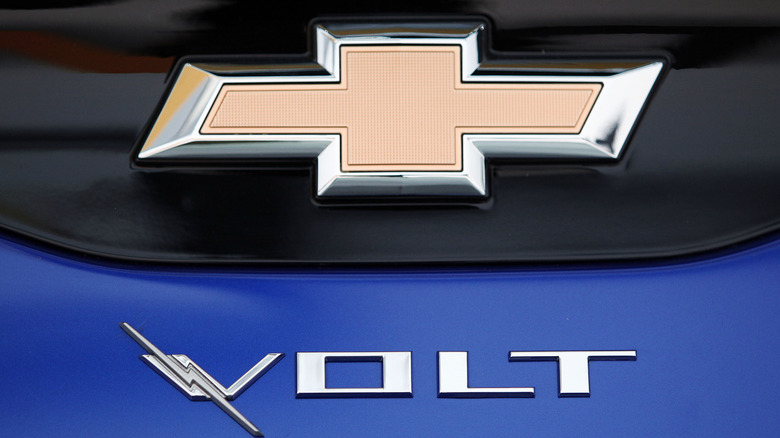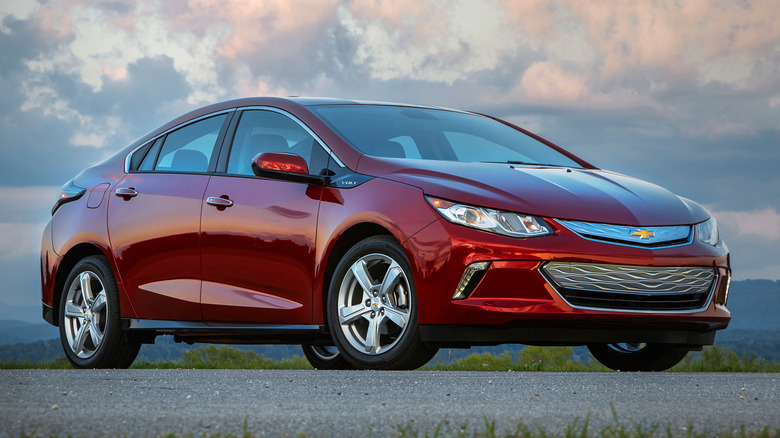The Reason Why Chevrolet Discontinued The Volt
When it comes to electric vehicles, GM has been in the game for longer than most, starting with the GM EV1 in the 1990s. Flash forward 30 years and GM's Chevy brand is practically revamping its entire fleet to EV models. The current Chevy Bolt is a competent small car with shockingly low pricing, and on the opposite end, the GMC Hummer is a quick, albeit heavy, EV super truck. In the future, Chevy plans to give Ford a run for its money with the 2024 Silverado EV.
In the early days, Chevy's EV1 was one of the biggest flops in GM history which left Chevy's electric future to the Chevrolet Volt plug-in. It was the missing link between the internal combustion cars of the past and the electric vehicles of the future. It was a hybrid in the truest sense of the word, but it was around for less than a decade from 2011 to 2019.
Paving the way for an EV future
In 2011, the first model year of production, the Volt's drivetrain setup was certainly unusual. The Volt's electric motors had essentially two power sources: a battery and an internal combustion engine acting as a generator of sorts when the battery was running dry. The first iterations of the Volt could go for well over 300 miles on a tank of gas and about 30 miles on just battery power (via Edmunds). Later models upgraded that to over 400 miles on hybrid power and over 50 miles on battery (via Chevrolet).
The Volt suffered from the standard Fisher-Price-like interior plastics that all GM's are adorned with, but it wasn't a miserable vehicle at all. Aside from a small back seat and an initially high price tag of over $40,000, reviewers generally liked the Volt quite a bit. It was relatively quick for a small car and economical for short excursions. CBS News reports that some owners even went over 1,400 miles between trips to the gas station as they never drove far enough for the gas engine to ever kick in.
The end of the Volt
The Volt's demise was certainly not a case of drivers hating the car or its garish styling. It wasn't even in the wrong place at the wrong time. Rather, it was a stepping stone. Bob Lutz, the former GM Vice Chairman told CBS News that the Volt was "a financial loser [that] did what was intended." In 2019, the Volt was already old technology with fully electric models like the Chevy Bolt making the Volt redundant. GM also was smack-dab in the middle of retooling several manufacturing facilities. The proliferation of SUVs, crossovers, and trucks didn't help either. According to GM Authority, General Motors cut 10 sedans from its brands in a span of just five years leading up to 2020. The prognosis was not good for the Volt even if it wasn't losing money left and right.
All of those factors compounded into the final Volt leaving the assembly line in February of 2019. Revolutionary as it was, it had already fulfilled its purpose on earth. The Volt was a bridge of sorts between the ill-fated EV1 and GM's current EV lineup. Without technology pioneered by the Volt, GM's EV offerings might not be as varied as they are today. Even though the Volt as a product is deceased, it served as an important milestone in GM's hopeful all-EV future.


